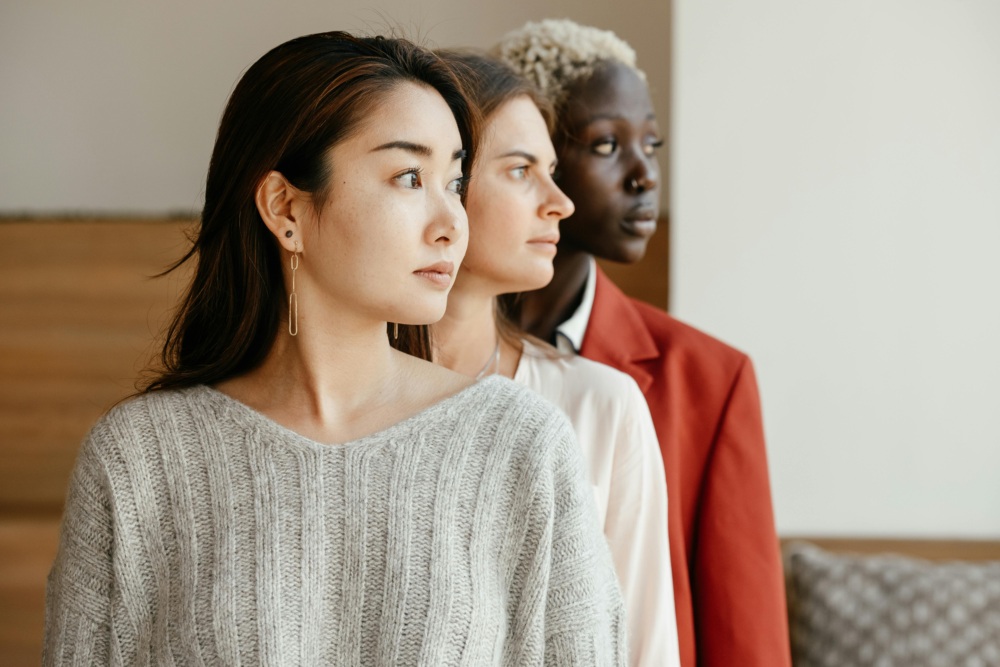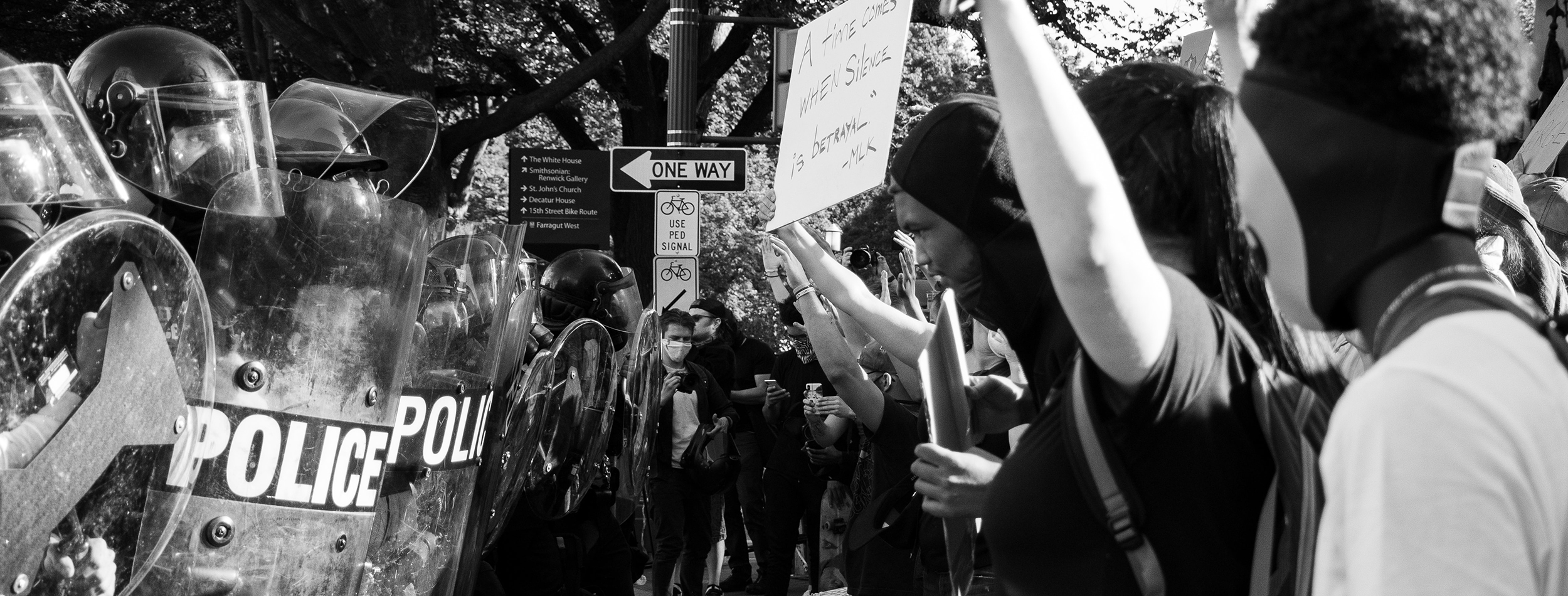

Your Legal Rights at a Protest
The first set of protests I attended were on my college campus, when other students and I were advocating for better Title IX policies. I next found myself taking to the streets in New York City after Eric Garner’s death spurred a wave of marches in support of black lives. Participating in direct action, both as a protester and National Lawyer’s Guild legal observer, shaped my understanding of how social justice issues are connected and how solidarity asks us to show up for causes beyond the ones that affect us most.
I want my clients and anyone else connected with ERA’s work to feel inspired and empowered to take a stand for racial justice in response to the murder of George Floyd by the Minneapolis Police Department. Direct action is not the right choice for everyone, especially as COVID-19 continues to impact our communities, but for some of you it will be. It is our job as social justice lawyers to educate people on their rights so they can decide on the action that is best for them.
With that in mind, here are some basic rights and considerations to be aware of if you are considering protesting:
- In America, protesting is considered a fundamental right. It is protected by both the Constitution and the First Amendment. However, police can impose some restrictions on when, where, and how you protest. For example, they can implement a curfew (as many cities are currently doing) or stop protestors from obstructing traffic by keeping them out of the street or off the highway. The police are supposed to protect your right to protest and de-escalate the threat of violence.
- The police may only issue a dispersal warning as a last resort to break up a protest when it poses an immediate threat to public safety. You must be given a clear explanation of the order–including how to leave safely and the consequences of failing to do so–as well as sufficient time to comply before you can be arrested or charged with a crime.
- You have the right to video record the police as long as you are not interfering with their operations. Filming from a safe distance is not interfering. Police may not confiscate any videos or images on your device without a warrant, and may not delete data under any circumstances.
- If you are stopped by the police, you do not have to assume you are under arrest. First ask if you are free to go; if they say yes, walk away calmly. If they say no, ask why you are being detained. he police can only detain you with reasonable suspicion that you are about to commit a crime or are engaged in one.
- If you are arrested, you have the right to remain silent. Do not speak to the police, sign anything, or do anything without an attorney present. You have the right to a phone call, and the police cannot listen to a call to a lawyer made for legal help. Organizations in many cities provide jail support for protestors, which may include help finding a lawyer and posting bail. If you are arrested in the Bay Area, you can call 415-285-1011 from inside any local jail to connect with legal help (I suggest writing this number on your arm in permanent marker before attending a protest).
- If you feel like your rights were violated, try to write down as much information as you can when you’re able to do so (including the officers’ name and badge numbers, time and location of events, and contact information for witnesses) and take photos of injuries. You can use this and any recordings of what happened to file a written complaint against the police agency or explore other potential legal action.
The above is only a starting point; for more information, check out further resources about your rights, such as this guide from the ACLU, and this article with additional advice on how to stay safe in the streets. Stay strong, stay safe, and I’ll see you out there.
Stay Connected & Take Action
- Get the Latest News & Information Sign up for Email Updates
- Sign Up for Action Alerts Join the Action Team
- Follow Us

